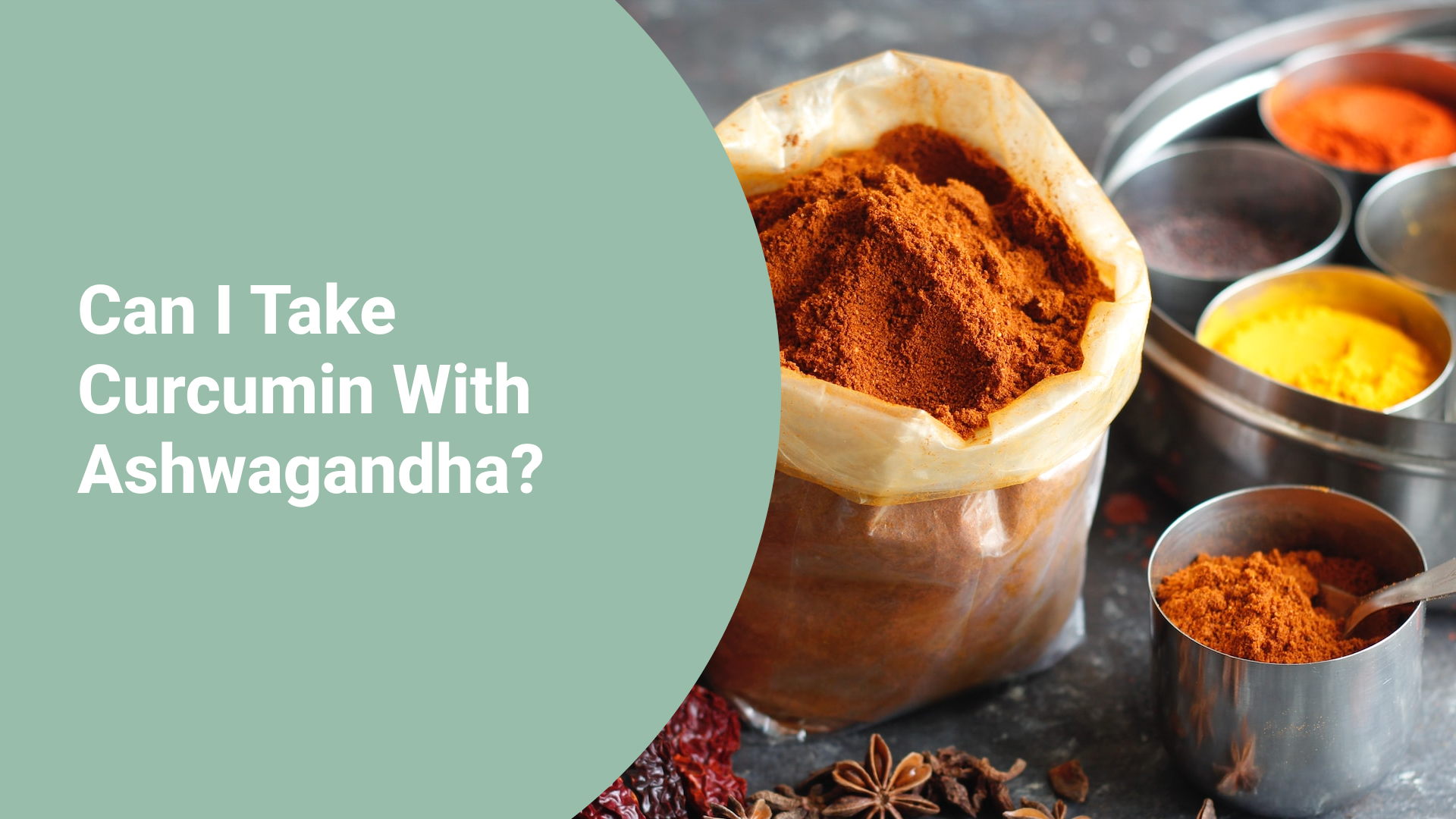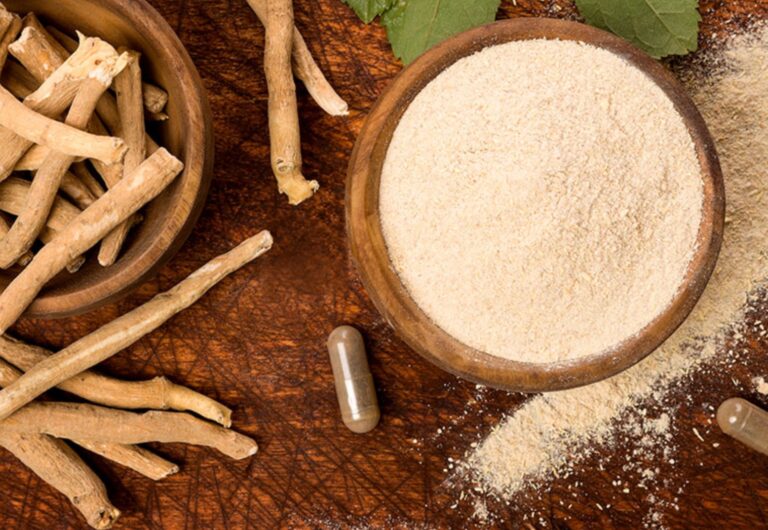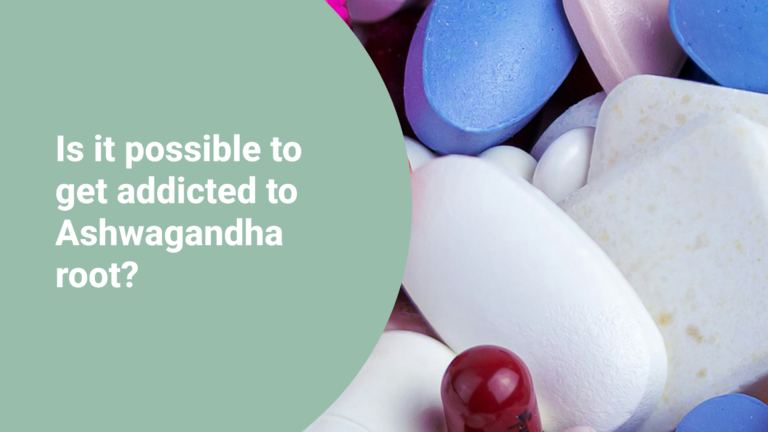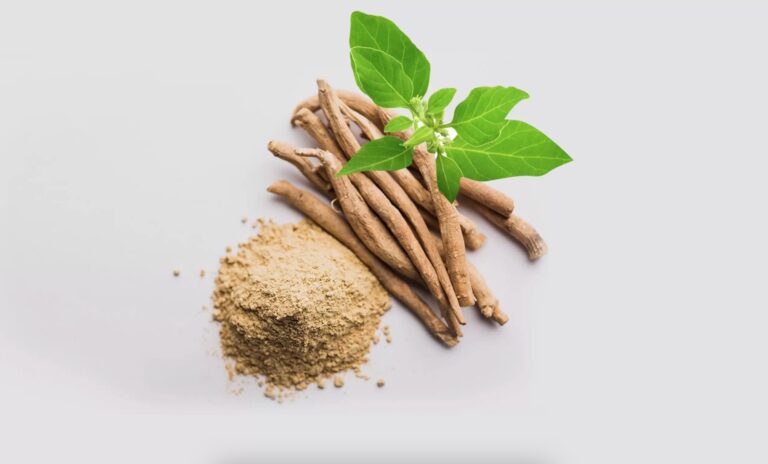Can I Take Curcumin (Turmeric) With Ashwagandha?

Ashwagandha Expert is a project that offers the most accurate information in an accessible, understandable and applicable way so that readers can make the best...Read more
✅ Evidence-Based
⚙️ Methodology
From the author:
My Pick

Turmeric Curcumin & Ashwagandha Supplements with Black Pepper. 95% Curcuminoids.
If you are looking for a safe, effective and beneficial Ashwagandha product containing Curcumin, you can use the Turmeric, Ashwagandha & Ginger product from Vimerson Health that I recommend.
Small note: If you purchase the product through the button below, I may earn a small commission and continue this project.
Tongkat Ali vs Ashwagandha
Curcumin and Ashwagandha are commonly used in traditional Ayurvedic medicine. People often wonder if it’s safe to combine these herbs. Does Ashwagandha’s calming effect on the nervous system complement the properties of curcumin?
Moreover, the question arises: can you take Ashwagandha and curcumin together?
What is curcumin?
Curcumin or curcuminoids are widely used as spices, pigments and additives. It is the primary bioactive ingredient of turmeric. They are widely used as therapeutic agents. Additionally, it has anti-inflammatory properties and there is scientific evidence that it can relieve various conditions such as stress, anxiety, and depression.
What are curcumin’s main benefits?
Curcumin has various benefits on physical health, brain health and emotional state.
It is anti-inflammatory and antioxidant
Curcumin is a powerful anti-inflammatory and antioxidant and reduces markers of inflammation. It increases the endogenous antioxidant level in the body. However, these effects of curcumin are only seen with long-term use. In the short term, it may not have any effect with low use.
Reduces stress, anxiety and depression
Scientific research confirms that curcumin can alleviate depression symptoms by boosting BDNF, a vital brain chemical that decreases during depressive states.
In a mouse study, various curcumin doses showed a clear increase in BDNF levels, with the 200 mg/kg dose proving most effective in reducing depression-like symptoms.
In another study, 60 individuals with major depressive disorder were divided into three groups. One group took 20 mg of fluoxetine daily, another received 1,000 mg of curcumin, and the third had both. After six weeks, all groups experienced similar improvements, leading experts to suggest curcumin as a potentially safe and effective treatment for major depressive disorder.
Arthritis relief
Curcumin relieves painful symptoms of both osteoarthritis and rheumatoid arthritis. Curcumin, a powerful anti-inflammatory, is successful in eliminating or relieving symptoms such as joint pain, joint stiffness, and redness in the joints.
A recent study revealed that a daily intake of 1,000 mg of Meriva significantly improved stiffness and physical function in individuals with osteoarthritis over eight months, while the control group showed no improvement. Meriva, a proprietary blend, contains natural curcuminoids, phosphatidylcholine, and microcrystalline cellulose.
A recent study looked at how curcumin impacts knee osteoarthritis. People who took 40 mg of nanocurcumin in a capsule every 12 hours for six weeks felt less pain and stiffness compared to those who didn’t.
Research in mice showed that taking 50 mg of oral curcumin per kilogram of body weight noticeably slowed down the advancement of OA.
Prevents and treats diabetes
Curcumin is a beneficial substance that can help manage diabetes. Numerous studies show its effectiveness in both preventing and treating diabetes, including diabetic nephropathy, a condition impacting individuals with type 1 and type 2 diabetes.
The majority of the studies were conducted on mice.
In a specific study, rats with type 2 diabetes experienced a noteworthy drop in blood sugar levels after receiving 80 mg of tetrahydrocurcumin (a key component of curcumin) per body weight for 45 days.
Another study focused on obese mice with type 2 diabetes revealed that curcumin supplements played a role in reducing blood insulin levels over a 16-week period.
Improved brain health
There is research showing that curcumin may benefit brain health. It has therapeutic and restorative properties against changes in the brain structure, especially after chronic stress.
The antioxidant and anti-inflammatory properties of curcumin are also effective in preventing and relieving the symptoms of other neurodegenerative diseases such as dementia, Huntingon’s disease, multiple sclerosis and Parkinson’s disease.
Curcumin also improves memory and regulates neuron firing in the brain.
Cancer prevention
Curcumin might help treat or prevent cancer. Studies don’t fully confirm this, but there’s strong evidence that it slows down cancer cell growth.
Inflammation is closely tied to tumor growth, and curcumin, known for its anti-inflammatory properties, may have a crucial role in treating various cancers, such as colorectal, pancreatic, prostate, breast, and stomach cancers.
Studies on mice indicate that curcumin could impede tumor cell spread and possibly prevent tumors from forming. It achieves this by disrupting cancer cell formation, interfering with cell signaling pathways, and prompting cancerous cells to die.
Additionally, turmeric or curcumin may alleviate certain cancer symptoms. A review of 11 studies, including eight focused on prostate cancer patients, suggests that supplementing with turmeric or curcumin may offer benefits.
What is Turmeric?
Turmeric, a spice, adds a yellow hue to curry powder and brightens certain mustards. It comes from the roots of an Asian plant and has been used in cooking, dyes, and condiments for ages. Besides its culinary role, turmeric has a 4000-year history in traditional Indian Ayurvedic medicine, treating issues like skin conditions, allergies, and joint pain.
What’s the difference between Turmeric and Curcumin?
Turmeric is an herb whose roots are used for cooking and herbal drinks. It contains curcumin, a natural compound giving it a bright yellow color and functioning as a powerful antioxidant. Curcumin is part of a group of compounds in turmeric known as curcuminoids, which also includes demethoxy curcumin and bisdemethoxy curcumin. In essence, turmeric is the herb, while curcumin is the specific compound within its roots.
What is Ashwagandha?
Ashwagandha, or Indian Ginseng, is a natural supplement from the Ashwagandha plant’s root, known for its benefits in traditional Indian medicine (Ayurveda). The root’s horse-like scent gives it the name “ashwa” (horse) and “ghanda” (smell).
As an adaptogen, it helps regulate metabolism during physical or mental stress, promoting resilience and adaptation. Adaptogens, like Ashwagandha, are widely used for stress relief, brain health, and supporting adrenal well-being.
[READ: What Are Adaptogens? Popular Herbs, Types, Benefits & Risks]
What are the main benefits of Ashwagandha?
Ashwagandha has many benefits. Here are some of them:
- Increases testosterone level
- Regulates the nervous system
- Reduces neuron firing and provides calmness
- Improves anxiety
- Improves depression
- It reduces stress
- Reverses the damage caused by chronic damage to the brain
- Provides physical energy
- Helps burn fat
- Increases muscle growth and muscle recovery time
Read the article I wrote to learn all the scientifically proven benefits of Ashwagandha.
Can You Take Ashwagandha and Curcumin Together?
Yes, it is safe to use Ashwagandha with both Turmeric and curcumin, the main ingredient in Turmeric. Both are natural supplements that have been used in traditional Ayurvedic medicine for centuries. The stress and anxiety-helping effects of Ashwagandha and the anti-inflammatory and antioxidant effects of curcumin cause a synergistic effect.
Are there any interactions between Ashwagandha and Curcumin with any other supplements or medications?
Ashwagandha and Curcumin are generally considered safe for most people when taken in appropriate doses.
But using both together may interact with other medications or nutritional supplements you use.
- Blood-thinning Medications: Curcumin has mild blood-thinning properties. Combining it with anticoagulant or antiplatelet medications like aspirin, warfarin, or clopidogrel may increase the risk of bleeding.
- Immunosuppressant medications: Ashwagandha may enhance the immune system, potentially interacting with drugs like corticosteroids or cyclosporine that suppress immunity.
- Diabetes medications: Ashwagandha can lower blood sugar levels. If you’re on diabetes medications like insulin or oral hypoglycemics, combining them with Ashwagandha may intensify the blood sugar-lowering effects.
- Thyroid medications: Ashwagandha may affect thyroid hormone levels. If you take medications like levothyroxine for thyroid conditions, consult your healthcare provider before using Ashwagandha supplements.
What are some possible side effects of taking Ashwagandha and Turmeric together?
Ashwagandha and Curcumin are generally safe in appropriate doses. However, they may cause side effects.
The combined use of Ashwagandha and Curcumin may cause the following side effects:
- Stomach upset
- Diarrhea
- Nausea
- Drowsiness (due to mild sedative properties of Ashwagandha; avoid activities requiring alertness)
- Potential reduction in blood pressure (monitor if you have low blood pressure or take blood pressure medications)
- Bloating
- Allergic reactions (rash, difficulty breathing) in some individuals
- Thinning of the blood (potential interference with clotting; caution if you have bleeding disorders or take blood-thinning medications)
What are the recommended dosages for Ashwagandha and Curcumin/Turmeric?
For Ashwagandha and Turmeric, the right dosage varies based on factors like age, overall health, and the specific product or form you’re using. Keep in mind, there’s no one-size-fits-all dosage for Ashwagandha. While 300mg may work for some, it might be too much for others.
Start with a minimum Ashwagandha dose of 250-300 mg, especially if you’re new to it. Limit use to under two months to gauge effects. If you feel nausea, headache, or fatigue after starting, your dose might be too high. Consult your doctor in such cases.
Curcumin’s minimum dose is 0-3 mg per kg of body weight.
Can You Take a Combo of Ashwagandha and Curcumin/Turmeric Every Day?
For ongoing well-being, daily use of Curcumin and Ashwagandha in recommended doses is safe and beneficial. But be careful not to use Ashwagandha for more than 2 months.
Ashwagandha Expert is a project that offers the most accurate information in an accessible, understandable and applicable way so that readers can make the best possible decisions about the Ashwagandha plant and its use.
More Posts





